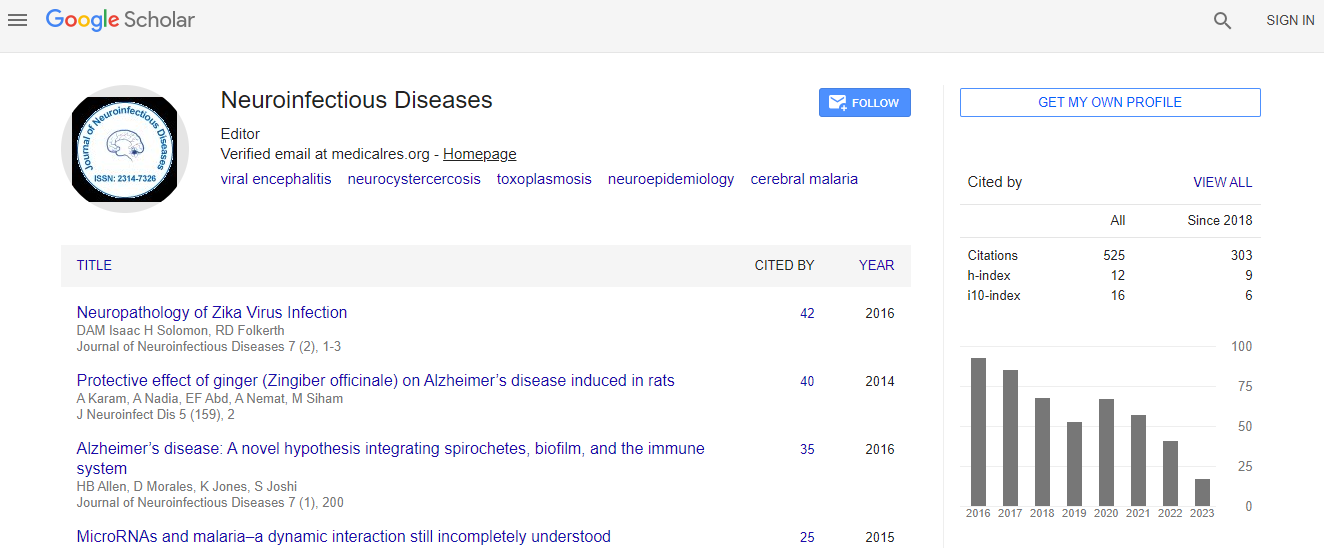Case Report
Neuropsychological Consultation in Infectious Diseases: Pathogenesis and Neuropsychological Sequelae in Herpes Simplex Encephalitis
Patricia A. Pimental1,2,3,* and Mia M. Gregor4,5
1Department of Behavioral Medicine, Midwestern University, 555 31st St., Downers Grove, IL 60515, USA
2Neurobehavioral Medicine Consultants, Ltd., Carol Stream, IL 60188-2600, USA
3Adventist GlenOaks Hospital, 701 Winthrop Avenue, Glendale Heights, IL 60139, USA
4Center for Personal Development, 405 N. Wabash Ave., Suite 1114, Chicago, IL 60611, USA
5The Chicago School of Professional Psychology, 350 N Orleans, Suite 1050, Chicago, IL 60654-1822, USA
- *Corresponding Author:
- Patricia A. Pimental
Department of Behavioral Medicine
Midwestern University, 555 31st St.
Downers Grove, IL 60515, USA
E-mail: dr.pimental@comcast.net
Received Date: 28 December 2011 Revised Date: 16 March 2012 Accepted Date: 19 March 2012
Abstract
Herpes simplex encephalitis (HSE) is an acute or subacute sporadic encephalitic illness. It has a predilection for the medial temporal lobes, the orbital surface of the frontal lobes, and subcortical structures such as the hippocampus. Sequelae may include seizures and neuropsychological impairment. The present case study involves a 66-year old, retired, Caucasian male diagnosed with herpes simplex encephalitis. Evaluation methods consisted of electrophysiological, laboratory, and radiological testing. Comparison of neuropsychological test results yielded high agreement in terms of site of lesion as documented by MRI and EEG findings. Neuropsychological test findings are described in detail. This case study serves to underscore the clinical utility of neuropsychological testing in infectious disease consultations, specifically in herpes simplex encephalitis.

 Spanish
Spanish  Chinese
Chinese  Russian
Russian  German
German  French
French  Japanese
Japanese  Portuguese
Portuguese  Hindi
Hindi 
